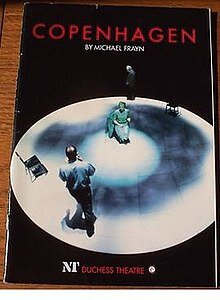Content

Polay later founded the Tupac Amaru Revolutionary Movement , and he fought in the Internal conflict in Peru alongside the Shining Path against the dictatorships that ruled the country. In 1992 he was arrested, and in 2006 he was sentenced to 32 years in prison for war crimes. Individualized Attention – From arraignment through trial, Mitch will personally handle every aspect of your defense. Bi-Lingual Staff Fluent in Spanish – Effective communication is essential to your case and this is why we have a staff member fluent in Spanish. Being charged with a crime is a serious matter that requires serious legal representation.
In determining whether McMahon engaged in extreme and outrageous conduct, the Court did not consider the allegations that he filed false police reports and harassment prevention petitions. Thus, there was no error in the judge’s dismissal of the plaintiffs’ claim of intentional infliction of emotional distress. No matter how grave or serious your criminal charges may be, Mitchell Polay can handle the case. Mitch is well recognized for crafting powerful defense strategies for clients accused of high-stakes crimes, including death penalty and first degree murder cases. He has been featured on 48 Hours and he obtained a not guilty verdict in a case involving an America’s Most Wanted fugitive. Major newspapers and media outlets also regularly follow Mitch’s cases, including his high-profile defenses in the Dunkin’ Donut Murder and Waffle House Murder trials.
2.6 On 3 August 1993, the Constituent Assembly of Peru re-established the death penalty for acts of terrorism. The author fears that this new provision will be applied with retroactive effect to her husband and that, accordingly, he might well be sentenced to death.
Victor Polay
2.4 The author further submits that her husband is held in a subterranean cell where sunlight only penetrates for 10 minutes a day, through a small opening in the ceiling. During the first year of his prison sentence, he was not permitted visits by any friends or relatives, nor was he allowed to write to anyone or to receive correspondence. A delegation of the International Committee of the Red Cross has been allowed to visit him. Next, the Court found that the plaintiffs failed to sufficiently to allege severe emotional distress. Other than referring to the plaintiffs’ emotional distress as “extreme,” the complaint contains only a conclusory statement.
7.4 The second report provided by the State party concerned the visit to Mr. Polay Campos on 20 December 1994 by the District Attorney and a court-registered doctor (see paragraph 4.2 above). It noted that Mr. Polay Campos was indeed suffering from muscular contraction, due primarily to the psychological stress caused by the conditions of his incarceration. It further stated that Mr. Polay Campos was experiencing pain in his left shoulder, to be treated with medication .

The State party confirmed that the judgment of the Special Chamber of the Superior Court of Lima had become final, and that there was no record of any request for review of the sentence (recurso de revisión) having been filed on behalf of Victor Polay Campos. 6.2 As to the complaint that Mr. Polay Campos had been tortured and subjected to treatment in violation of articles 7 and 10, the Committee considered that the facts as submitted appeared to raise issues under the Covenant, notably under articles 7 and 10 thereof.
Robert Polay
It added that it never received any written reports from the Red Cross delegates, as the visits to Mr. Polay Campos were carried out on a confidential basis. According to a list furnished by the State party, Mr. Polay Campos was visited by Red Cross delegates on 21 occasions between early December 1993 and the end of August 1996; from that list, it transpires that the longest lapse of time between two such visits was three months and 28 days . 6.3 Concerning the claim that the death penalty might be applied retroactively to Mr. Polay Campos, no evidence had been adduced to the effect that the provisions of new Peruvian legislation expanding the application of the death penalty had been retroactively applied to him. Accordingly, the Committee deemed this allegation inadmissible pursuant to article 2 of the Optional Protocol. 4.3 In a further submission dated 21 March 1995, the State party stated that the author had not submitted any new arguments and did not challenge the State party’s submission. The State party did not, however, specifically address or refute the author’s allegations of ill-treatment and torture of her husband.
Among other actions, McMahon installed several video cameras in his house, which were pointed at the plaintiffs’ property. Polay alleged that these cameras record their house on a continuous basis, and enable McMahon to see into the windows of their home. Polay’s complaint alleged that McMahon’s conduct caused “extreme discomfort and distress,” and that “the emotional distress suffered by them was severe and of such a nature that no reasonable person could be expected to endure it.” McMahon filed a motion to dismiss the complaint. Polay appealed, challenging only the dismissal of their invasion of privacy and intentional infliction of emotional distress claims. The standard for making a claim of intentional infliction of emotional distress is very high. Victor Polay was born on 6 April 1951 to a Chinese father and a Peruvian mother in Trujillo, and he adhered to Marxism.
It noted that a case concerning Mr. Polay Campos had been referred to the Inter-American Commission on Human Rights, where it had been registered as case No. 11.048 in August 1992, but that the Commission had indicated that it had no plans to prepare a report on the case within the next 12 months. In the circumstances, the Committee did not find that it was precluded, under article 5, paragraph 2 , of the Optional Protocol, from considering the communication. In 1997, the UN Human Rights Committee has found that the circumstances of his trial and detention violated articles 7, 10 and 14 of the ICCPR. The Committee deems it appropriate to deal separately with these two distinct periods of detention.
No information has been provided by the State party on the claim that Mr. Polay Campos continues to be kept in solitary confinement in a cell measuring two metres by two, and that apart from his daily recreation, he cannot see the light of day for more than 10 minutes a day. The Committee expresses serious concern over the latter aspects of Mr. Polay Campos’ detention. The Committee finds that the conditions of Mr. Polay Campos’ detention, especially his isolation for 23 hours a day in a small cell and the fact that he cannot have more than 10 minutes’ sunlight a day, constitute treatment contrary to article 7 and article 10, paragraph 1, of the Covenant. 8.6 As to the detention of Victor Polay Campos at Callao, it transpires from the file that he was denied visits by family and relatives for one year following his conviction, i.e. until 3 April 1994.
Please Complete The Security Check To Access Www Legacy.com
8.4 The author claims that Victor Polay Campos was detained incommunicado from the time of his arrival at the prison in Yanamayo until his transfer to the Callao Naval Base detention centre. The State party has not refuted this allegation; nor has it denied that Mr. Polay Campos was not allowed to speak or to write to anyone during that time, which also implies that he would have been unable to talk to a legal representative, or that he was kept in his unlit cell for 23 and a half hours a day in freezing temperatures. In the Committee’s opinion, these conditions amounted to a violation of article 10, paragraph 1, of the Covenant. 8.1 The Human Rights Committee has examined the present communication in the light of all the information made available to it by the parties to the case, as provided for in article 5, paragraph 1, of the Optional Protocol.
- The State party was further requested to provide detailed information about the operation of special tribunals established under Peruvian anti-terrorist legislation, and about the victim’s current conditions of detention.
- When you are facing criminal charges you need to have an experienced criminal defense attorney on your side to protect your reputation, your freedom and your future.
- Even if you think your charges are minor, a criminal conviction can dramatically impact your life and the lives of the people around you for a very long time.
- It noted that Mr. Polay Campos was indeed suffering from muscular contraction, due primarily to the psychological stress caused by the conditions of his incarceration.
- From DUIs, drug charges and simple misdemeanors to first degree felony murder and death penalty cases, Mitch has handled it all.
Whether this is your first criminal offense or you are considered to be a habitual offender, Mitch has the strength, skills and talent to combat the charges you are facing. Completing the CAPTCHA proves you are a human and gives you temporary access to the web property.
Polay V Mcmahon
As an experienced criminal defense attorney Mitchell understands just how overwhelming the criminal justice system can be. He believes in providing personalized service and attention throughout every stage of the criminal process. When you have questions or concerns about your case Mitch will provide you with all of the advice and information you are looking for, equipping you to make sounds decisions. Mitchell Polay is a first rate criminal defense attorney who will fight to protect your rights every step of the way.
Polay Interiors is a family-owned home accent and textile studio located in downtown Elmhurst. Specializing in custom window treatments and interior design, our designers have impeccable taste and unsurpassed talent developed over years of working with the finest clients in the western Chicago suburbs. 7.6 The State party reiterated that Mr. Polay Campos had also received regular visits from delegates of the International Committee of the Red Cross, who had corroborated the reports on his health given by the doctors of the Callao naval base.

The author submits that the above situation reveals that her husband is a victim of violations by Peru of article 2, paragraph 1, and articles 7, 10, 14 and 16 of the Covenant. In accordance with article 2, paragraph 3 , of the Covenant, the State party is under an obligation to provide Mr. Victor Polay Campos with an effective remedy. The victim was sentenced on the basis of a trial that failed to provide the basic guarantees of a fair trial. The Committee considers that Mr. Polay Campos should be released unless Peruvian law provides for the possibility of a fresh trial that does offer all the guarantees required by article 14 of the Covenant. 6.4 The Committee noted that the author had formulated detailed allegations about her husband’s conditions of detention and the alleged incompatibility of the procedure before the Special Military Tribunal with article 14. It took further note of the State party’s contention that the criminal proceedings against Mr. Polay Campos had followed established procedures under current Peruvian anti-terrorist legislation. 6.1 During its 56th session in March 1996, the Committee considered the admissibility of the communication.
2.5 As to the requirement of exhaustion of domestic remedies, the author submits that her husband’s lawyer appealed against conviction and sentence, but that the Tribunal’s Appeal Section confirmed the decision taken at first instance. The author further submits that the lawyer, Dr. Eduardo Diaz Canales, was himself imprisoned in June 1993 solely for having her husband and that since then “everything has been paralysed”. On 3 June 1994, Mr. Polay Campos’ mother filed with the Constitutional Court a recurso de amparo on his behalf with respect to his ill-treatment. The Supreme Judicial Court of Massachusetts reversed the dismissal of the invasion of privacy claim, but otherwise affirmed. Because the plaintiffs have alleged a continuous surveillance of the interior of their home that was conducted for the purpose of harassment, the plaintiffs have made out a plausible claim for invasion of privacy. The Court explained that whether McMahon acted for the legitimate purpose of securing his property in a way that outweighs any incidental intrusion on the plaintiffs’ privacy interests is, however, a question of fact not suitable for resolution on a motion to dismiss. Around April, 2008, McMahon and other neighbors entered into a common plan to harass Polay.

